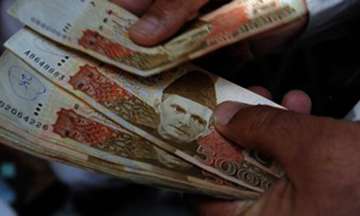The house arrest of Mumbai attacks mastermind Hafiz Saeed and the apparent crackdown on militants by authorities in Pakistan has triggered many a speculation. While some say the action has been taken following pressure by the US, others blame it on China.
While the first impression would obviously be to assume that the country, which has been hit by a spate of deadly terror attacks in its own backyard killing hundreds in the past few years, has finally woken up to the challenge in all its seriousness, fresh information coming through suggests otherwise.
Turns out that international terror finance watchdog, the Financial Action Task Force (FATF), which held its plenary in Paris last week, has handed Pakistan a three-month deadline to substantiate its claims of having blocked funding routes of militant outfits Jamaat-ud-Dawa, Jaish-e-Mohammed and their affiliates operating from its soil.
Any failure in compliance could result in Pakistan being placed in a category of nations with serious shortcomings in adhering to global standards on combating terror finance and putting a tab on money-laundering activities.
According to an Economic Times report, the FATF has a process of issuing public statements on countries with ‘deficiencies’, making them ‘untrustworthy’, almost a virtual ‘no go’ in the international financial system.
The report contends that Pakistan’s actions -- against JuD, JeM and its front Falah-i-Insaaniyat -- over the past month or so are a first in Pakistan’s attempts to convince the FATF of its seriousness in combating terror. Putting Hafiz Saeed under house arrest and a ban on his travel were also actions to drive home its point.
The ET report claims that the three-month deadline did not come easy for Pakistan. It was only upon taking note of the actions it had demonstrated, viz., placing Hafiz Saeed under house arrest etc., that the FATF agreed to extend the deadline by another 90 days.
The FATF, which categorically rejected Pakistan’s claims on cracking down on terror financing in its October meet, has now given Pakistan time till June this year to substantiate its claims. Pakistan did try to make diplomatic protests, but failed to convince many European nations which shared evidence of Pakistan-based groups trying to raise funds in their countries.
Pakistani authorities on January 30 put Hafiz Saeed and four others under detention under an Anti-Terrorism Act.
Days later, Pakistani authorities launched a massive crackdown against militants across the country a day after over 80 people were killed and 250 were injured in a suicide bomb attack targeting a Sufi shrine in Sindh province. Pakistani authorities claimed to have killed at least 39 suspected terrorists in operations in different cities.
Latest World News

